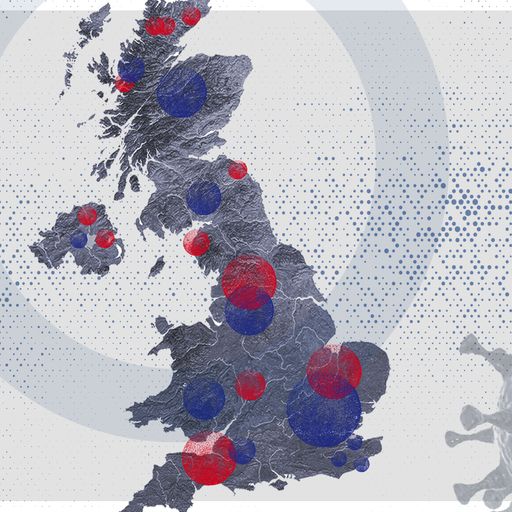Coronavirus: 'Long COVID' warning as study finds one in 20 have virus symptoms for eight weeks or more
Research from King's College London finds so-called "long COVID" affects around 10% of 18 to 49-year-olds who catch the virus.
Wednesday 21 October 2020 13:03, UK
One in 20 people with coronavirus are likely to have symptoms for eight weeks or more, according to a new study by King's College London.
The research, which uses data from the COVID Symptom Study App, suggested so-called "long COVID" affects around 10% of 18 to 49-year-olds who become unwell with coronavirus.
Public Health England (PHE) found that around 10% of people with COVID-19, who were not admitted to hospital, had reported symptoms lasting more than four weeks.
They also found several cases of people who were taken to hospital with the virus and later reported continuing symptoms for eight or more weeks after discharge.
The symptoms of long COVID include fatigue, protracted loss of taste or smell, respiratory and cardiovascular symptoms, and mental health problems.
Live updates on coronavirus from UK and around world
They are described in a new film which was released on Wednesday as part of the wider national Hands, Face and Space campaign.
The film features the stories of four people who explain how their lives have been affected weeks and months after being diagnosed with COVID-19.
Tom, 32, says in the production: "Do not make the mistake of thinking that being young or being fit is going to stop COVID from having a long-term impact on your health."
Jade, 32, adds: "The virus doesn't care about any of that.
"I developed coronavirus symptoms in March and, as someone who lives alone, it was very concerning, and I hoped it would be over after a week or two.
"Every time I thought I was making a recovery my symptoms returned - my breathing and fatigue was overwhelming, and I eventually understood I was experiencing the long-term COVID-19."
A 22-year-old woman, also called Jade, says in the film: "I haven't had a day since mid-March where I've felt better. I'm a nursery practitioner and I haven't been able to work for seven months now.
"I'm having to rest more, sleep more and I don't have the energy that I used to at all. I really hope that I go back to my normal self. Not knowing makes me feel really worried about my future."
A 48-year-old man named John also features in the film.
The four people discuss symptoms such as breathlessness when walking up the stairs, intermittent fevers and chest pain.
Health Secretary Matt Hancock is urging the public, especially young people, to follow the guidelines to protect themselves and others from the potentially debilitating long-term impact of COVID-19.
He said: "I am acutely aware of the lasting and debilitating impact long COVID can have on people of all ages, irrespective of the seriousness of the initial symptoms.
"The findings from researchers at King's College London are stark and this should be a sharp reminder to the public - including to young people - that COVID-19 is indiscriminate and can have long-term and potentially devastating effects."
The NHS recently announced £10m to run designated long COVID clinics in every area across England.
Consultants, physiotherapists, other specialists, and GPs will all help assess, diagnose and treat thousands of people who have reported symptoms ranging from breathlessness, chronic fatigue, "brain fog" to anxiety and stress.






